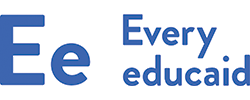The Reading Book is a comprehensive guide to teaching reading. It contains research-based information that will support primary and middle school teachers to plan realistic and effective programmes that engage learners. This book outlines the approaches used in balanced reading instruction in a clear, teacher-friendly way. It contains practical ideas and 71 photocopiable and downloadable resources. Many of the activities in the book are suitable as home reading activities, these are indicated with the home reading icon.
Slide presentations available to download:
- SS1 Teaching self-monitoring
- SS2 Introducing reciprocal reading
- SS3 Introducing book clubs
- SS4 Shared reading plan - Junior level - poetry
- SS5 Shared reading plan - Middle level - fiction
- SS6 Shared reading plan - Middle level - non-fiction
- SS7 Shared reading plan - Senior level - fiction
- SS8 Shared reading plan - Senior level - non-fiction
Authors: Sheena Cameron and Louise Dempsey.
Slide presentations available to download:
- SS1 Teaching self-monitoring
- SS2 Introducing reciprocal reading
- SS3 Introducing book clubs
- SS4 Shared reading plan - Junior level - poetry
- SS5 Shared reading plan - Middle level - fiction
- SS6 Shared reading plan - Middle level - non-fiction
- SS7 Shared reading plan - Senior level - fiction
- SS8 Shared reading plan - Senior level - non-fiction
Authors: Sheena Cameron and Louise Dempsey.










